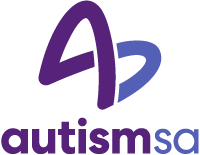Autism Signs and Characteristics: A Checklist for Adults
While it is very often the case that people with autism are diagnosed when they are children or during their school years, there are nevertheless many adults who may be on the spectrum but who do not have a formal diagnosis of autism.
This may be because an individual thinks or knows that they are on the autism spectrum but have chosen not to have an assessment, or it could be the case that an individual is not aware that they are autistic because they have never been assessed at any point in their lives.
Why aren’t the characteristics of autism recognised in adults?
There may be any number of reasons why an adult who might be autistic has not had an assessment or an autism diagnosis.
It might be because they themselves, their families or their friends aren’t aware of the characteristics of autism, or that the behaviours associated with autism do not impact significantly on their functional skills or daily living activities. Adults on the spectrum without a diagnosis may also have developed and learnt a range of strategies over their lifespan and so no longer think a diagnosis is relevant or necessary.
Alternatively, an individual may have at some stage received another diagnosis that seems to account for some of the characteristics of autism they display. Therefore either not seeking an additional diagnosis, or are not aware that having an additional diagnosis is possible or that an autism diagnosis would prove more accurate.
Some adults may also be content to self-identify as being on the spectrum and do not see the need for a formal diagnosis. Others may simply not want to have a diagnosis, whether because of the cost, wait times, or for other reasons.
Adults on the spectrum without a diagnosis may have developed and learnt a range of strategies over their lifespan, and so no longer think a diagnosis is relevant or necessary.
What are the benefits of an adult having an autism diagnosis?
If you think that you might be autistic yourself, or you think an adult family member or friend may be on the autism spectrum but they have never had a formal assessment or diagnosis, you might question whether there is any point in doing so now, particularly if autism does not seem to be impacting on functional skills or daily living activities.
Ultimately, this is a personal decision. Many adults on the spectrum who do not have a formal diagnosis have fulfilling employment, maintain happy and meaningful relationships, and enjoy a good quality of life.
At the same time, some adults who have not been formally diagnosed can find life challenging in terms of how they connect and engage with others, or in maintaining consistent and meaningful employment, and as a consequence might feel isolated, confused and frustrated, and may be unsure as to why. This can ultimately impact on health, wellbeing and quality of life.
“Some adults who have not been formally diagnosed can find life challenging…and as a consequence might feel isolated, confused and frustrated, and may be unsure as to why.”
Therefore, while it is a personal decision to seek an autism assessment, there may be a number of benefits to be gained from having a diagnosis of autism, regardless of the stage of life at which it occurs:
- You may gain a greater understanding of yourself and your behaviours, which can bring with it greater peace of mind
- You may also gain a better understanding of your childhood experiences, school years and adolescence
- You might grow in self-confidence and increase self esteem knowing that there are many other individuals that have had a similar experience as your self
- Having a better understanding of your needs may help you to develop a greater range of strategies to support them
- Family, friends and people you work with will have a greater understanding of your needs (should you choose to share your diagnosis), and
- A diagnosis might enable you to access support, help and funding that may be of assistance.
Many adults on the spectrum who do not have a formal diagnosis have fulfilling employment, maintain happy and meaningful relationships, and enjoy a good quality of life.
Signs of autism in adults
Although the lived experience of autism will be different for adults of all ages, there are nevertheless some common signs and characteristics that indicate a person may be on the spectrum. The checklist below is a guide and it is not expected that any individual would display all of these characteristics.
Please also note that the information below is simply a list of some of the common signs and characteristics of autism, and is not intended to be comprehensive or definitive. It is also important to keep in mind that what follows is a brief summary, and that only trained, accredited specialists can make a diagnosis of autism.
To be diagnosed with an Autism Spectrum Disorder, an individual does not need to have difficulties in all areas but rather must meet a specific combination of criteria across two domains:
- Social communication and social interaction
- Repetitive or restricted behaviour, interests or activities
Social communication and social interaction
Some of the characteristics that adults with an autism diagnosis commonly report, include:
- You may find it difficult to join conversations
- You may attempt to dominate conversations and bring the topic around to things that interest you
- You may find small talk difficult
- You may find two-way conversations and taking turns in talk difficult to do
- You may have difficulty in understanding and responding to non-literal language, such as metaphors and sarcasm
- You may speak in a flat, monotone voice, or use repetitive language
- You may use your own unique phrases and expressions
- You may make unexpected or unusual facial expressions or gestures when speaking with people
- You may have difficulty in understanding the thoughts or feelings of others
- You may find that other people have difficulty in understanding your thoughts or feelings or miss understanding what you are communicating
- It may be difficult for you to comprehend or respond to the facial expressions or body language of others, or to read social cues
- Other people tell you that they have difficulty understanding how you are thinking or feeling
- You may be very direct in your assessments of people and things
- Maintaining eye contact during interactions with others may be difficult, or
- You may have difficulty in establishing and maintaining close friendships.
Repetitive or restricted behaviour, interests or activities
Some of the characteristics that adults with an autism diagnosis commonly report, include:
- You may enjoy routine and schedules, and can become upset or anxious when they are changed or not adhered to
- There are repetitive daily rituals and routines that you like to follow
- You may become upset when unexpected things happen
- You may get bothered if others move or rearrange your possessions
- You may make noises that others find unexpected
- You may have very specific interests and hobbies to which you devote a lot of time
- You may find it difficult to multi-task
- You may have very strong reactions to sensory stimuli, or alternatively no reaction at all. This can apply to noises, sounds, smells, tastes and textures, or
- You may prefer to do things on your own, both at work and at home.

Getting an autism assessment
If you or someone you know is displaying some of the signs and characteristics associated with autism as described above, an autism assessment conducted by trained and qualified specialists in diagnosis will provide an answer as to whether that individual is on the autism spectrum or not.
For many years Autism SA has provided autism assessments. Due to high demand we are not taking any new referrals at this time. We apologise for the inconvenience.
There are many Diagnosticians across South Australia. Please look at our Diagnosticians Directory and contact them directly to find out wait times and costs. Please note, the directory does not include all diagnosticians in the state.
Diagnostician directoryAutistics’ Guide to Adulthood
Autistics’ Guide to Adulthood is an online life-skills resource to support people to achieve their goals. It’s free and available to anyone who would like to learn more about adulthood.
Enquire about this article








